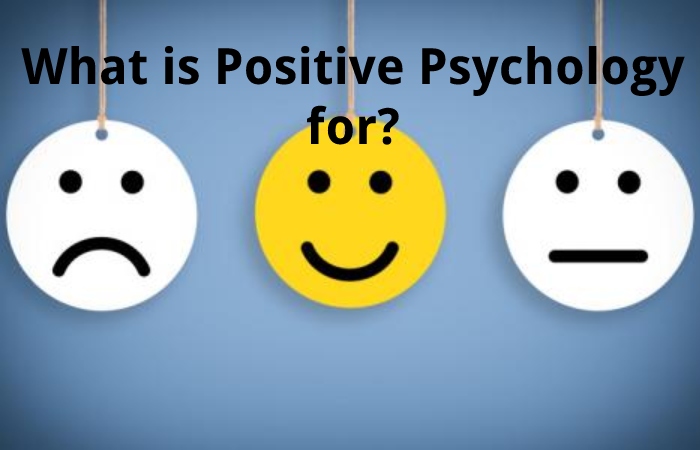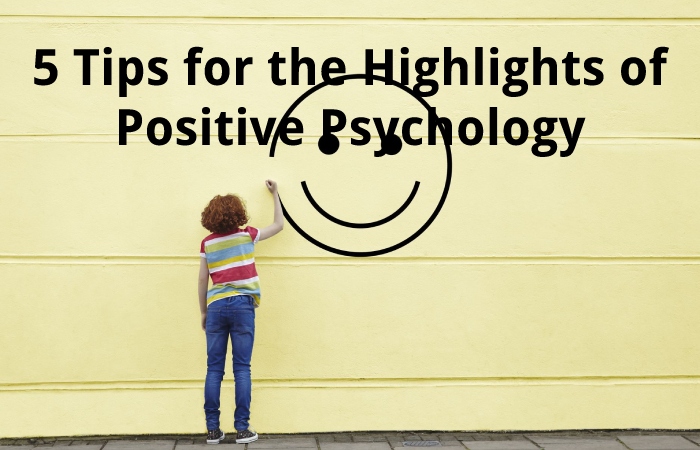Table of Contents
Positive Psychology
Positive psychology is one of the newest trends in psychology. It focuses on the study of people’s experiences and positive traits. It studies individuals’ strengths, virtues, motivations, and capabilities. And how these features help improve their quality of life and enhance their personal development.
Usually, the different psychological theories have focused on explaining and studying the various mental pathologies and the negative behaviours of individuals. However, from Positive Psychology, we can explore our strategies to reach and optimize our strengths. That is, it focuses attention on the prevention of different mental problems.
What is Positive Psychology?
Positive psychology is a psychological approach that studies, scientifically, how to favour the strengths and virtues of the human being’s character, such as optimism, joy, inspiration, motivation and sense of humour, among others, to develop and enhance a positive attitude to live a whole, fluid life and as a prevention of mental health pathologies.
What is Positive Psychology for?

It is scientifically proven that developing positive emotions favours health, personal growth and well-being. Furthermore, a positive attitude increases the intellectual, physical and social resources of people so that they can reply in the best way when unexpected or difficult circumstances arise. That is to say; it is assumed that a person who develops a positive attitude manages to be more resilient and promotes, through positive emotions, the ability to face, autonomously and effectively, situations that cause stress or any psychopathological damage in people with a positive attitude. Pessimistic.
Origins of Positive Psychology
The first antecedents of Positive Psychology emerged in the 20s and 30s in the works of Terman and Watson; in the studies of these psychologists, they referred to aspects such as the talent of students, the importance home of caring for children, and studied the factors of emotions involved in the happiness of the couple.
Before World War II, psychologists worked to identify and reinforce individuals’ talents or strengths so they could face various situations. On the contrary, as the importance of the war, the perspective of psychology was changed to deal mainly with individuals with mental disorders, and the main objective of psychologists was to alleviate the suffering of these people. As a significant opposition to this trend, different authors such as Abraham Maslow and Carl Rogers began to work on some ideas of strengths and the importance of human happiness.
The Use of Positive Psychology as a Psychological Intervention
At the clinical level, one of the objectives of positive psychology is to change the intervention framework towards developing therapeutic strategies that favour positive emotional experience, which is oriented towards the prevention and treatment of benefits problems derived from emotions and thoughts. Negatives, such as anxiety, depression, aggression and stress. These emotions also narrow the individual’s behavioural repertoire, as they affect thought and action processes.
The development of positive emotions reinforces the emotional-cognitive anchors that we all have naturally and generates a strategy for prevention, acting as a barrier against psychological disorders and contributing, in a meaningful way, with the capacity for recovery.
Positive Psychology According to Seligman
The term positive psychology was defined by Martin Seligman as the scientific study of positive experiences, positive individual traits, institutions that facilitate their development, and programs that help improve the quality of life of individuals while preventing or reducing depression. Incidence of psychopathology.
Seligman, after dedicating a large part of his career to the study of learned helplessness and psychopathology, was a specialist in depression, took a radical turn towards the scientific study of what he called human strengths and virtues, which allowed adopting a perspective more open about human potential, motivations, and capabilities. In his book “Authentic Happiness”, he states that positive psychology is based on three pillars:
The study of positive emotions. What does the study of:
- Satisfaction with the past or the feeling of complacency, personal fulfilment, pride and serenity.
- Happiness, joy, tranquillity, euphoria, pleasure, and the optimal and complete present experience.
- Hope, optimism, faith, and trust for the future.
Positive traits involve the study of strengths, such as the ability to love and work, courage, compassion, resilience, creativity, curiosity, integrity, self-knowledge, moderation, self-control, and wisdom.
Some Positive Psychology Books
To learn more about Positive Psychology, we have chosen six books on this exciting topic:
- “Flow”: the psychology of happiness, by Mihaly Csikszentmihalyi.
- “Real Happiness” by Martin EP Seligman.
- The Science of Happiness by Sonja Lyubomirsky.
- “The Life That Blooms” by Martin EP Seligman.
- “Positive Psychology: Happiness Awareness,” by Alan Carry.
- “Mindfulness in Everyday Life,” by J. Kabat-Zinn, introduces “mindfulness meditation” for coping with stress, pain, anxiety, and illness.
Positive Psychology and its Difference with Pseudoscience
One of the banners that have been proudly defended in all the Positive Psychology congresses has been that it is based on the scientific method.
What does this mean? The models and exercises proposed by the authors have been previously studied and validated to demonstrate that they are effective in a significant percentage of the population, that is, that they are not due to accidental or the placebo effect. Researchers have made such an effort at this point that longitudinal studies and meta-analyses already exist.
Should you Force Yourself to Feel Happy?
No, and whoever claims otherwise is not a reliable source of Positive Psychology.
5 Tips for the Highlights of Positive Psychology

- Positive Psychology focuses on what you do have to improve psychological well-being.
- If does not deny negative sentiments or force you to be happy.
- It is based on the scientific method.
- Variables have discoveries that influence your well-being: balanced personal strengths, sense of life, achievement, relationships, positive emotions, etc.
- Knowing your strengths is key to fostering wellness.
Why is Positive Psychology Important to you as a Company or Entrepreneur?
I already told you in the introduction to this post about the significant link between happiness and performance at work. Indeed you experience it yourself.
Pressure, for instance, is one of the most significant common negative emotions in the world of work, and their many techniques focus on reducing it (thank goodness, because we need it). But companies do not focus on the happiness of their employees. Or you, in yourself and your collaborators, if you are an entrepreneur.
Conclusion
Positive psychology is a modern line whose purpose is to find and cultivate genius and talent and make everyday life more fulfilling, not just work with mental disturbances. This area dedicates to improving, not replacing, current psychology. Instead, the goal is to use the scientific method to determine why things are going well. Positive psychologists address four themes: positive experiences, enduring psychological traits, positive relationships, and positive institutions.
